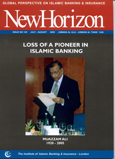![]() change management
change management![]() financial product expert-witness and arbitration
financial product expert-witness and arbitration
![]() financial innovation and risk consulting
financial innovation and risk consulting
![]() banking training
banking training
![]()
Islamic Derivatives
4 July 2007  Warren Edwardes interviewed
by
Don Brownlow - IBS Publishing, on behalf of New Horizon
Warren Edwardes interviewed
by
Don Brownlow - IBS Publishing, on behalf of New Horizon
The acceptance of Islamic derivatives is widely
debated but they are deemed more acceptable in Malaysia than in The Gulf. There
are a number of structures being talked about but most of them are proprietary
with public details sketchy. Various ancient precedents have been borrowed by
Islamic Financial Engineers especially Arboun (down payment) and Wakala (agency
management fee).
And of course the tried and tested sale and purchase agreements can be brought
to work – Murabaha, Salam and Tawaruk. After all anything is possible with
Murabaha. Enter into three-way circular sale and purchase agreements on a
commodity to generate a debt on behalf of a Black Box Special Purpose Vehicle
and that Special Vehicle can invest in Pork Bellies or interest bearing
securities or link to the value of any equity including banks and gaming firms.
And all this combined with The Doctrine of Ibaha (Permissibility). If it has not
been banned it is permissible.
Perhaps in order to create Islamic derivatives it is worthwhile going back to
first principles on derivatives and recall how they were created in the early
1980’s. Interest rate swaps, FRAs, currency swaps, futures and options were just
being talked about – at least in Europe. But there were back-to-back
cross-currency loans, Forward-Forwards and HOLDs (Hedges on Loans and Deposits)
which were on balance sheet precursors to currency swaps, FRAs and Futures. Even
option effects were managed via delta hedging. And option premiums were embedded
into Break Forwards and Participating Forwards.
It is also worthwhile to look into what is widely acceptable in terms of Islamic
risk management – Takaful - and apply Takaful principles into creating
derivatives. In 1985 at Midland Bank I was involved in the creation of a novel
foreign exchange product – The SCOUT. This was the Shared Currency Option Under
Tender contract. Several parties shared the costs and benefits of a currency
option. Very similar to Takaful.
Warren Edwardes
Warren was previously on the board of Charterhouse Bank and has worked in the treasury divisions of Barclays Bank, British Gas and Midland Bank. He first researched into what were later to be called "derivatives" in 1975 and was part of the team that executed one of the world's first currency swaps in 1981. Since then he has devised and transacted numerous structures that form part of the history of derivatives. Warren can be contacted via we@dc3.co.uk
Edwardes is a Board Governor of The Institute of Islamic Banking & Insurance
![]()